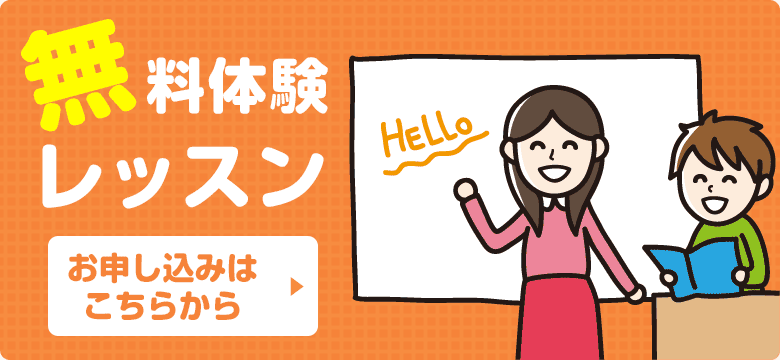カテゴリー:未分類
Yakushima? I barely know ‘er! 英会話・英語 アミック
Fresh off a recent trip to Tokyo I have already started looking forward to my next travel bout. I stumbled upon a Wikipedia page about World Heritage Sites in Japan and discovered Yakushima.
Yakushima is an island off the southern coast of Kyushu. The island has been a World Heritage Site since 1993 because it is home to a massive ancient forest. Although Yakushima has many different types of flora and fauna, it’s Japanese Cedar trees are the real crowd pleaser; some are thought to be 2300 years old! Although many people suffer with hay fever from cedar trees, that’s not enough to stop 300,000 tourists from visiting the island each year.While these trees were logged for many years during the Edo period, commercial logging of the island was banned in the 1960s and the trees have been replanted. Additionally, Yakushima is home to the largest nesting ground for loggerhead sea turtles. The island is also home to macaques, deer, weasels, and the surrounding waters are full of dolphins and coral reefs.
Before you pack your bags and head out, you should be aware that the route to Yakushima can be challenging. There’s two different ferry services available to get there, but no cars are allowed on the island. Yakushima also has a small airport with two flights a day. Hiking to the top of Yakushima’s many peaks is extremely popular with tourists, but make sure to pack appropriate clothing. Yakushima is known as “Japan’s Wettest Place”, so a raincoat and water-proof boots are a must especially in June!
Fun fact: Yakushima is the inspiration for the forest settings in Princess Mononoke! So what do you think? Should I go??
Sports Idioms and Expressions In Everyday English – 英会話・英語 アミック
Many of the more frequently-used English idioms and expressions originate from sports. However these 10, and countless others, are now so commonplace that they’ve taken on lives of their own in our everyday speech.
| Term/Expression | Origin | Non-Sports Meaning | Example sentence |
| Ballpark | Baseball | To give an estimated guess | Could you ballpark an estimate on next month’s sales figures? |
| By a nose | Horse racing | To finish something by a slim margin of distance or time | He won the election by a nose. |
| Down to the wire | Horse racing | To finish something at the last minute | It came down to the wire, but I finished all my homework before class. |
| Off-base | Baseball | Something that is inappropriate | Her comments about my hair were way off-base. |
| Out of left field | Baseball | A surprising or unexpected event | The news about his firing came completely out of left field. |
| Par for the course | Golf | The expected behavior for a certain situation | Andrew forgetting his umbrella is pretty par for the course. |
| Rain check | Baseball | To postpone an invitation to do something until a later date | Can we take a rain check on our date tonight? I’ve had a long day. |
| Saved by the bell | Boxing | Spared from misfortune at the last instant by some outside force | I was literally saved by the bell when the fire alarm went off during our test. |
| The ball is in my/his/her/your court | Tennis | Someone’s turn to take action next | We’ve done everything we can to help him; the ball is in his court now. |
会話・英語 アミック Person, Persons, People and peoples
Person, persons, people and peoples.
Person
A person is a human man, woman, or child. It is a singular countable noun.
- There was one person at the door.
- When did you see this suspicious person?
- She’s a very interesting person. You should talk to her.
People and peoples
The plural of person is people. It refers to a group or a number of human beings. It is a plural countable noun.
- There were three people at the door.
- How many people do you know?
- The people who live here are very rich.
People can also mean nation. Peoples is the plural form of this meaning. Peoples means nations.
- The Aztecs were a people that lived in the Americas.
- The English are a strange people.
- There are many peoples living on the Earth.
- When the peoples of the Earth unite, we will have peace.
Persons
Persons is a more formal, more polite form of people. It’s a plural countable noun and is most often seen written down – such as on signs, in newspapers and in the context of the law.
- This lift can hold a maximum of 15 persons.
- The police expect to catch the persons responsible for the theft.
- My client has never seen these persons before and so he is innocent.
56 Ways To Say Hello And Goodbye In English – 英会話・英語 アミック
Most of the time, I greet my students with a hearty ‘Hello!’ and ‘How are you?’ at the beginning of class, followed by a “Goodbye!” or “See you!” at the end.
But in English, there are so many other great ways to say these things, especially when hanging out with friends.
Instead of ‘Hello’ and ‘How Are You?’, try…
- Hi
- Hiya
- Hey
- Hey there
- Howdy
- Holla
- Good morning
- ‘morning!
- Good afternoon
- G’day
- Good evening
- How’s it going?
- What’s up?
- Sup?
- Sup dude (men only)
- What’s happening?
- What’s going on?
- Hola*
- Yo
- What’s good?
- How have you been?
- How are things?
- What’s new?
- What have you been up to?
- Hey man (men only)
- How’s life?
- How’s your day going?
- Long time no see
Instead of ‘Goodbye’ or ‘See you’, try…
- Bye!
- Bye bye
- Good night
- See you later
- Talk to you later
- Catch you later
- Later
- Later alligator
- Have a good day
- Have a good night
- Have a good one
- Adios*
- Take care
- Take it easy
- So long
- Peace
- Peace out
- I’m out
- I’m off
- See you next time
- I’ve got to get going
- I ‘ve gotta go/jet/dip/bounce/split/roll/head out/hit the road
- Good seeing you
- Good talking with you
- I’m outta (out of) here
- I’m going to call it a day/night
- See you on the flip side
- See you on the flippity flop
*Spanish, but sometimes (American) English speakers say it for fun
Rainy Season Soundtrack 英会話・英語 アミック
Some music, whether songs or full albums, are able to evoke complete atmospheres; an exploration in emotional landscapes if you will. We are nearing the end of the rainy season (I hope), but I wanted to share an album that always complimented rainy days for me. The album is Disintegration by The Cure. While Robert Smith directly conjures images of rain in his lyrics and song titles, the music really makes the listener feel it. The album starts out very romantic and dreamlike but steadily descends to this gloomy, sunken place where it perpetually rains on dark vegetation (that album cover really captures my imagination). But don’t worry, there are also lighter pop moments that give you shelter along the way. Here’s a very literal “rainy” song but please give the whole album a listen to understand the journey!
Joe



